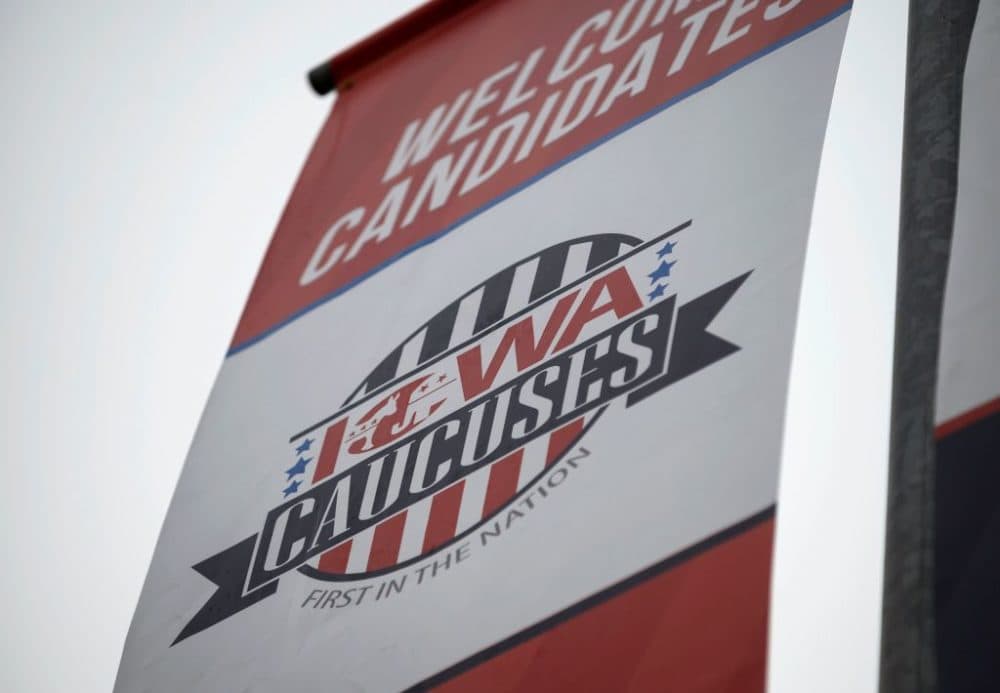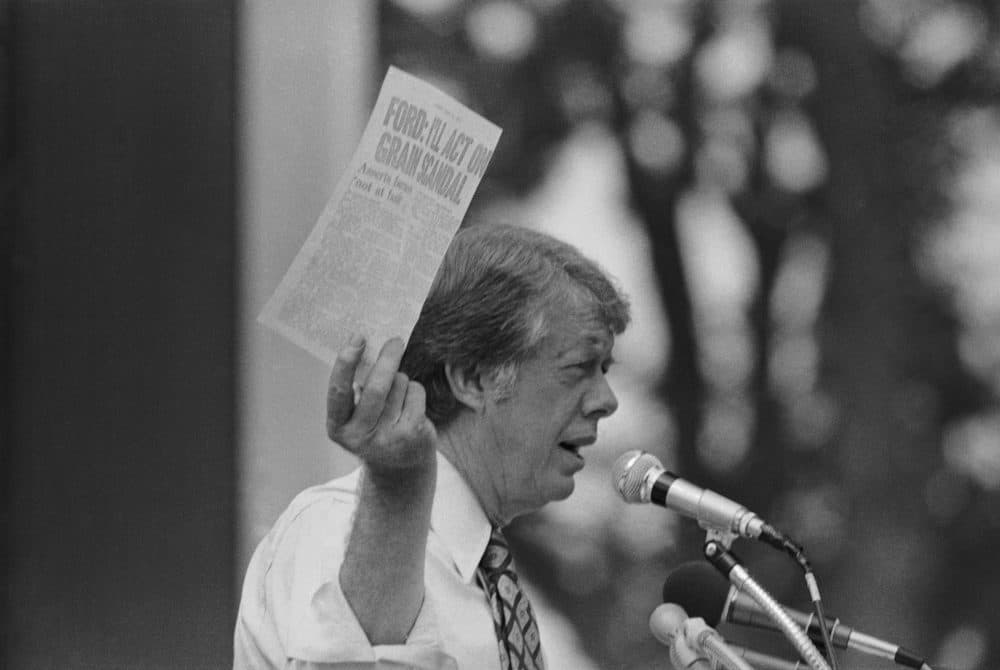Advertisement
Caucusing 101: How Iowa Turned Into A Political Phenomenon
Resume
Iowa matters because it's first, but how did that happen?
"It's really Jimmy Carter's fault," says Steffen Schmidt, professor of political science at Iowa State University.
But that's getting slightly ahead of the story.
The caucuses that will be held Monday night across this state — in small towns and big towns, in schools and even people's homes — grew out of reforms that were enacted after the chaos of the Democratic convention in Chicago in 1968.
Inside the convention hall, the Democrats nominated George McGovern, who would go on to lose to Richard Nixon in a landslide. But people watching television saw violent clashes in the streets between police and anti-war protesters.
The party responded with changes that opened the nomination process up to regular voters instead of party leaders picking the nominee in smoke-filled rooms at the conventions.
The first candidate to take advantage of the new system was former President Carter in the 1976 presidential race.
Before Iowa, Carter was an “unknown governor from Georgia” who people called “Jimmy Who” because they didn’t know who he was, Schmidt says.

Carter came in second behind "uncommitted" and the media declared him the winner of the Iowa caucuses. He went on to get the nomination and win the election, which Schmidt says created “a sense that there was something going on in Iowa that was really interesting.”
"Really it was the sort of folklore of Iowa, going back to farmers and democracy and small towns and people meeting in homes to vote for their favorite presidential candidate,” he says. “That created a nice sort of beginning to the process and the media liked it, and it really became a media event."
Besides signaling who the top candidates are, the caucuses elect delegates who could eventually go to the national nominating conventions. Iowa is first because officials said they needed more time to get the results to the country conventions, Schmidt says.
There was a lot of paperwork involved — and no internet in the 1970s — so the Iowa Democratic Party officials decided they needed to hold caucuses in January before any other state.
"So what was first,” Schmidt says, "was basically the result of poor technology."
Republicans saw the excitement and interest generated by Jimmy Carter's Iowa caucus performance. The party got together with the Democrats and decided to have the GOP caucuses on the same night, Schmidt says.
The year 1976 was the launching point. New Hampshire joined in by deciding to have a primary right after the Iowa caucuses.
But how do caucuses work? The Democrats and Republicans do it differently.
At the GOP caucuses, people vote for their preferred candidate and the results are tabulated statewide. It's more like the primary that will take place in New Hampshire on Feb. 11.
At Democratic caucus in Iowa, voters declare who they support. The person running the caucus counts how many supporters each candidate has.
If a candidate doesn't have at least 15% of those attending that particular precinct's caucus, the candidate is not viable. People supporting candidates who have at least 15% try to convince supporters of candidates who don't to join them.
This can take a while, but we should have the results of the nation's first 2020 presidential contest sometime Monday night around 10 p.m., Schmidt says.
A candidate doesn't have to win the Iowa caucuses to secure the nomination but a top-three finish in Iowa is basically mandatory.
"It's not because Iowa has some sort of magic potion in its water," Schmidt says. "It's because the Iowa caucus attendees tend to reflect the partisans in all the rest of the states, the people who vote in primaries in other states. Iowa is very much part of the partisan mood of the times.”
For example, when the GOP was more moderate, more moderate Republican candidates won the Iowa caucuses, he says. But when the GOP shifted more conservative, Iowa moved in the same direction.
Past results do seem to reflect what Schmidt says. George H.W. Bush won the GOP caucuses in 1980. Ronald Reagan was second, but he went on to capture the nomination and the presidency.
More recent winners include George W. Bush, Mike Huckabee, Rick Santorum and Ted Cruz. Cruz beat Donald Trump in Iowa in 2016, but Trump secured the GOP presidential nomination and won the general election over Hillary Clinton.
Iowa is more than 90% white, according to the 2010 census, and that's one reason why some criticize the process for allowing the state to go first.
Schmidt says it's a fair critique, but he points to the success Barack Obama had in Iowa 2008 when his victory launched a campaign that ended with him in the White House as the nation's first African American president.
"When mostly white Iowa Democrats decided Barack Obama looks pretty good, voters, I think, in the Democratic Party said, ‘That's interesting,’ " says Schmidt. "Yes, you can make the case Iowa's too small. Iowa's too rural. Iowa is too white. But the people Iowans choose on caucus night tend to resonate well with voters in other parts of the country."
This segment aired on January 31, 2020.



